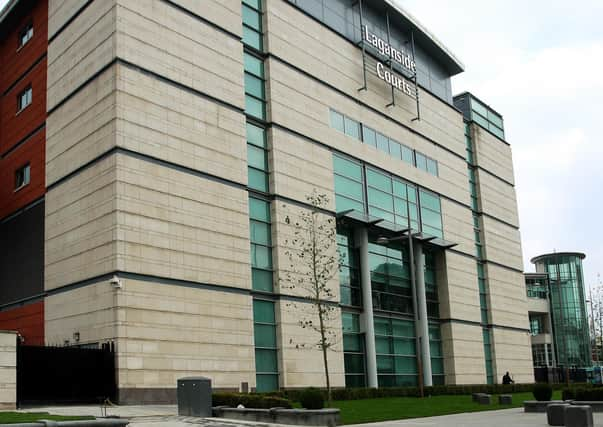Woman loses court battle on right to be called parent


Senior judges rejected claims that a legislative prohibition, based on their civil partnership status, breached her human rights.
Sir Declan Morgan ruled yesterday: “We accept that the inability to register on the birth certificate is a source of frustration and disappointment to the appellant, but that does not justify setting aside this carefully constructed statutory scheme.”
Advertisement
Hide AdAdvertisement
Hide AdThe case centred on a dispute over the couple’s claims that they should both have parental recognition.
In 2014 the two women, referred to as A and J, began online searches for a sperm donor.
Contact was made with a man who agreed to provide his sperm for artificial insemination.
Later that year the child, R, was born and J registered as his mother.
Advertisement
Hide AdAdvertisement
Hide AdAt the time the couple were not in a civil partnership, but an agreement was reached that they would co-parent the boy. J and the child also both took A’s surname as part of their family arrangements.
However, a dispute with the sperm donor developed over the extent of any future contact between him and the boy.
In 2015 the two women entered a civil partnership, and J subsequently gave birth to another two children.
Both children’s birth certificates have A registered as the other parent.
Advertisement
Hide AdAdvertisement
Hide AdShe petitioned for a declaration of parentage of R in a bid to be added to his birth certificate too.
Backed by her partner, she claimed refusing the application would amount to discrimination.
The couple insisted when the boy was born they were already in an enduring relationship which should be properly recognised.
In 2020 the High Court refused to grant the legal status sought.
Advertisement
Hide AdAdvertisement
Hide AdChallenging that decision, lawyers for A argued parts of the the Human Fertilisation and Embryology Act 2008 which prohibited a declaration of parentage in the case were incompatible with European Convention rights to family life and freedom from discrimination.
Her situation was compared to someone married or in a civil partnership who can register as a parent – regardless of whether the child was conceived through artificial insemination.
The Court of Appeal accepted a difference of treatment existed, based upon marital status.
But Sir Declan maintained: “The appellant can play a decisive role in the upbringing of the child, R, and a full part in the family life of the children.”
Advertisement
Hide AdAdvertisement
Hide AdDismissing the appeal, he ruled that the High Court was correct in refusing a declaration of parentage.
“We do not consider that sections 42 and 43 of the Human Fertilisation and Embryology Act 2008 ... are incompatible with the appellant’s Article 8 or 14 Convention rights.”